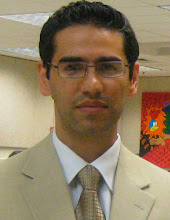http://www.rferl.org/reports/iran-report/2002/11/40-041102.asp
CENTRALIZATION OF PENAL SYSTEM TO RESOLVE SHORTCOMINGS.
Iranian prisons are facing many problems, particularly overcrowding and an absence of centralization and accountability. The Iranian legislature is trying to resolve the problems plaguing the penal system, starting with Tehran.
On 29 October, a fire broke out during what authorities described as an escape attempt in Qasr Prison, killing one inmate and injuring four others. IRNA reported the next day that the cellblock housing convicted murderers where the fire occurred held 1,000 inmates. Tehran Province Justice Department chief Abbas Ali Alizadeh called for the construction of new prisons in Tehran because the current facilities cannot accommodate all the new prisoners, "Entekhab" reported on 17 September, although he did not identify the source of the new convicts. Furthermore, a police official announced earlier that some of the 150-200 petty drug dealers and users who are arrested in Tehran every day must be released because of the shortage of prison space, IRNA reported on 27 June.
Iranian parliamentarians touring Iranian prisons in autumn and winter 2000 learned that there are many detention facilities that are not under the purview of the Prisons, Security, and Correction Organization (see "RFE/RL Iran Report," 22 January 2001). Concerned about these unknown prisons, they began an investigation of this phenomenon and learned that the Law Enforcement Forces (LEF), LEF precincts, the Armed Forces Judicial Organization, the Islamic Revolution Guards Corps (IRGC), the judiciary, and the Revolutionary courts all run separate penal facilities. In the case of Evin Prison, a section was reserved exclusively for the use of the Ministry of Intelligence and Security (MOIS).
Tehran parliamentarian Ali Akbar Musavi-Khoeniha described the discovery of these unknown prisons in October 2000, and in a 19 October 2002 interview with the Iranian Students News Agency, he described what has been done to deal with this crisis in the penal system. Musavi-Khoeniha said that Minister of Intelligence and Security Ali Yunesi had ordered the closure of the Towhid Detention Center, which will be turned into a museum. MOIS prisoners now are held at Evin Prison. The Islamic Revolution Guards Corps' "59 Eshratabad" Detention Center will be closed as soon as its new facility at Evin Prison is ready. The army's Heshmatieh Prison at the Qasr Crossroads has been turned over to the Prisons Organization. Musavi-Khoeniha also said that changes are under way at the Vozara judicial center, where people accused of drinking alcohol or attending parties are taken.
The detention center at Shahid Motahari Avenue remains a problem, Musavi-Khoeniha said. The facility is clearly unsuitable, but nothing has been done to improve conditions. Nor is it clear who is responsible for the facility. Musavi-Khoeniha said it appears to be an interrogation center for the judiciary's Security Department.
According to Musavi-Khoeniha, the Law Enforcement Forces run a facility north of Eshratabad Garrison for drug offenders. The women's quarters there are not suitable, and the LEF acknowledges a lack of resources to move them. There also have been complaints about the women's facility at Evin.
Musavi-Khoeniha said that legislators intend to visit detention centers at police stations and the Criminal Investigation Headquarters. He expressed the hope that in the future detention centers run by the security departments of the LEF, Ministry of Defense and Armed Forces Logistics, and the army would be transferred to Evin Prison. Qasr Prison is being moved to the outskirts of southern Tehran, but transferring prisons to the city's periphery is being held up by lack of funds.
Hassan Zarezadeh, director of Tehran's society to defend political prisoners, told RFE/RL's Persian Service on 21 October that Musavi-Khoeniha did not discuss the detention center on Seoul Street that is used by a Tehran police unit called the Public Establishments Office. This is the facility to which many writers, journalists, and artists have been summoned for questioning in the last year. (Bill Samii)
سهشنبه، آبان ۱۴، ۱۳۸۱
اشتراک در:
نظرات (Atom)



